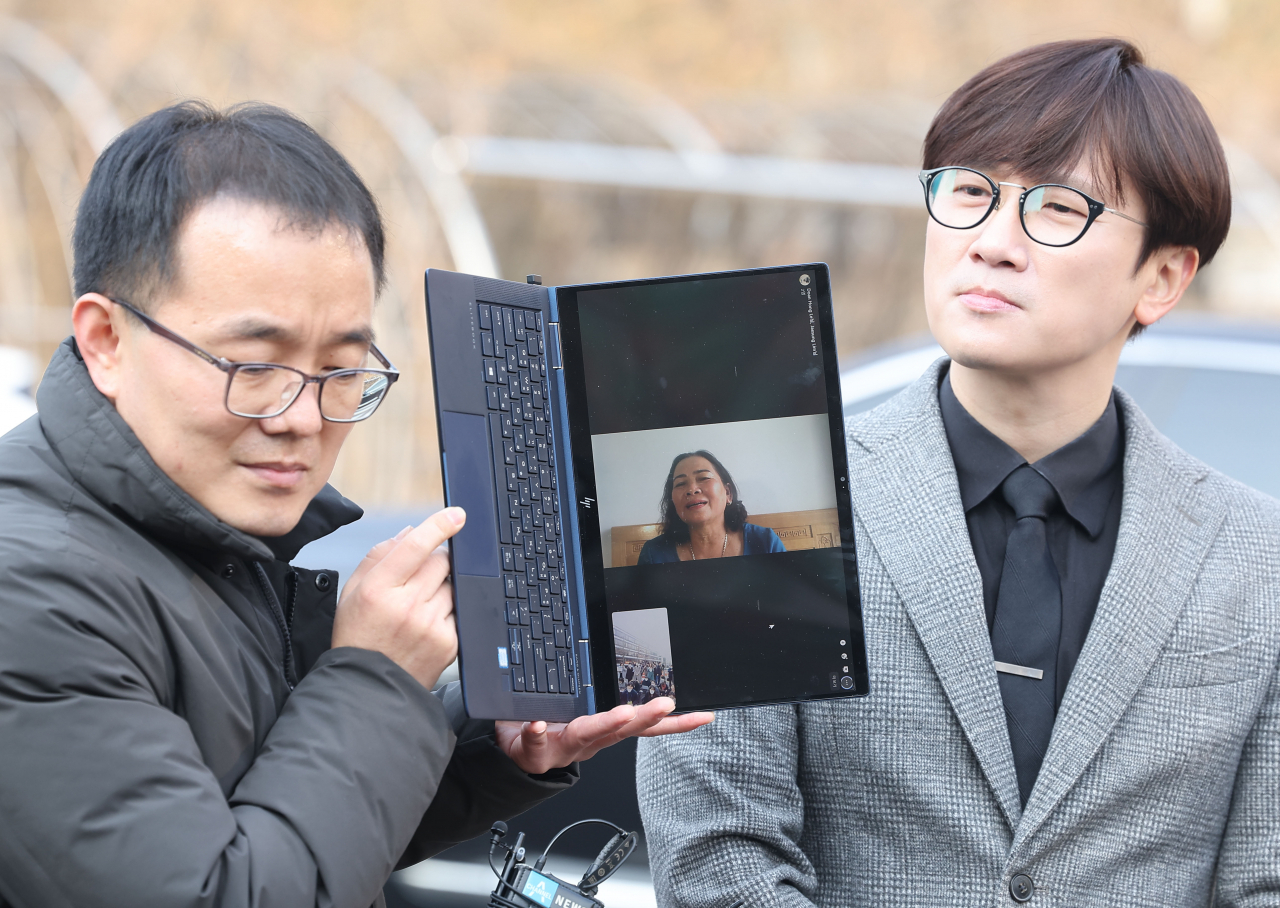Vietnam War haunts S. Korea as it seeks to settle Japan dispute
By Choi Si-youngPublished : Feb. 8, 2023 - 18:30

South Korea is facing potential hurdles in its yearslong battle to put behind once and for all its longtime historical dispute with Japan over forced labor, as it is now forced to revisit a claim that the Korean military was responsible for murdering civilians during the Vietnam War.
This week, a Seoul court ruled in favor of a Vietnamese civilian who had asked the Korean government for damages, saying the Korean Marines fighting alongside US forces hurt her and her family -- all unarmed at the time -- in the villages of Phong Nhi and Phong Nhat on Feb. 12, 1968.
It was the first time that South Korea publicly acknowledged its role in what some call a massacre. Nguyen Thi Thanh, the 62-year-old Vietnamese plaintiff, filed the lawsuit in April 2020, a year after Korea’s presidential office turned down her request for launching a fact-finding inquiry into the event.
“South Korean soldiers had used guns and ammunition not only to threaten the plaintiff and her family members and but to kill them. … The court finds such acts clearly wrong,” a ruling read, dismissing the government’s argument. It contended the plaintiff had no right to file the complaint in the first place, because a pact that South Korea, Vietnam and the US had signed together prevents such lawsuits.
But such an arrangement cannot terminate Nguyen’s right to appeal to the Korean government for redress, the court noted, inadvertently reminding the Korean government of a potential contradiction in the way it sees its wartime past. Foreign Minister Park Jin said this week he “respects” a 2018 Supreme Court ruling that said Korean forced laborers “had the right to seek damages” from Japanese companies for rights abuses during World War II. Tokyo refuses to honor the decision.
“I don’t think we can use the ‘same standards’ to look at two individual cases involving the Vietnamese civilian on one hand and Korean laborers on the other,” said Lee Won-deog, a professor of Japanese studies at Kookmin University, noting, “The first is criminal, with a military shooting at the unarmed; the other is civil, since it’s companies forcing civilians into labor. They share little similarity if not fundamentally different.”
Whether Vietnam would try finding fault with what it sees as a discrepancy in the way Korea looks back its wartime history involving rights abuses is highly unlikely, Lee said of a course of action ahead for Vietnam. An official at the Vietnamese Embassy in Seoul told The Korea Herald he was “keeping a close eye on the issue.”
Choi Eun-mi, a research fellow at the Asan Institute for Policy Studies, said bigger factors like “historic ties” come into play when a country reverses its position, referring to Hanoi’s seeming reluctance to ask for Seoul’s official apology for the 1968 incident. Vietnam has yet to demand anything beyond “regrets” -- acknowledgement past Korean presidents made sparingly. The Foreign Ministry toned down rhetoric even further this time once the ruling was out, saying Korea and Vietnam were in “close consultation” for better relations.
“Japan’s 1910-45 colonial rule of the Korean Peninsula sets Seoul-Tokyo ties apart from relations Seoul enjoys with other countries. What is argued there doesn’t translate the same here between Seoul and Hanoi, for example. And Vietnam surely knows that,” Cho said.
Last year, Korea and Vietnam upgraded their thirty-year relationship to the highest level for a “new era of cooperation.” Meanwhile, Korea and Japan are still struggling to reset ties strained by historical disputes.








![[KH Explains] Hyundai's full hybrid edge to pay off amid slow transition to pure EVs](http://res.heraldm.com/phpwas/restmb_idxmake.php?idx=644&simg=/content/image/2024/04/18/20240418050645_0.jpg&u=20240419100350)







![[From the Scene] Monks, Buddhists hail return of remains of Buddhas](http://res.heraldm.com/phpwas/restmb_idxmake.php?idx=652&simg=/content/image/2024/04/19/20240419050617_0.jpg&u=20240419175937)

![[KH Explains] Hyundai's full hybrid edge to pay off amid slow transition to pure EVs](http://res.heraldm.com/phpwas/restmb_idxmake.php?idx=652&simg=/content/image/2024/04/18/20240418050645_0.jpg&u=20240419100350)

![[Today’s K-pop] Illit drops debut single remix](http://res.heraldm.com/phpwas/restmb_idxmake.php?idx=642&simg=/content/image/2024/04/19/20240419050612_0.jpg&u=)